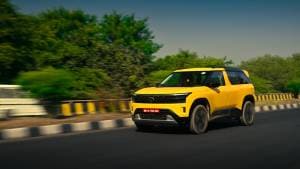Tata Altroz first drive review
Tata first showed their premium hatchback concept called the 45X at the Auto Expo in 2018. The production version named the Altroz was exhibited at the Geneva International Motor Show in 2019 and it was also scheduled for a 2019 launch. But Tata Motors decided to delay the market introduction of the Altroz to January 2020, because they wanted it to have BSVI compliant power plants right from its launch.
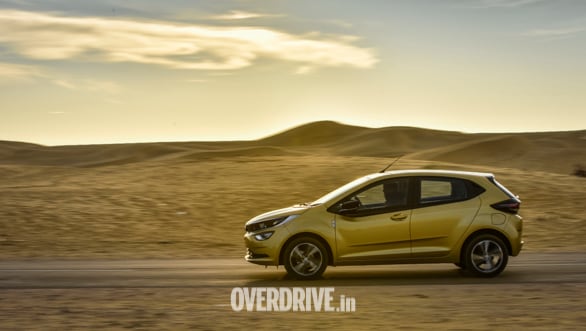
The Altroz is Tata's first vehicle to be based on the all-new ALFA (Agile Light Flexible Advanced) platform. This is a new modular architecture and is one of the two platforms on which all future Tata Motors products will be based. Tata says this new platform is scalable and has been designed to adapt to multiple body styles like the hatchback, sedan, MPV and even that of the compact SUV.
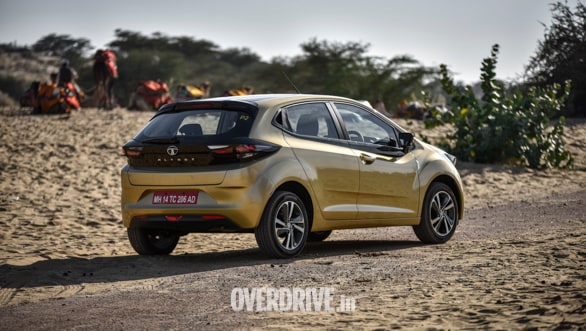
Things like the wheelbase, track, etc, can be changed and it has been engineered to be light but rigid, and Tata claims they have used modern technology and an energy absorbing structure for advanced safety. This ALFA platform is versatile and also designed to provide good luggage space; it has a flat floor to maximise leg space; it can support multiple power trains and is also capable of hybridisation and electrification.
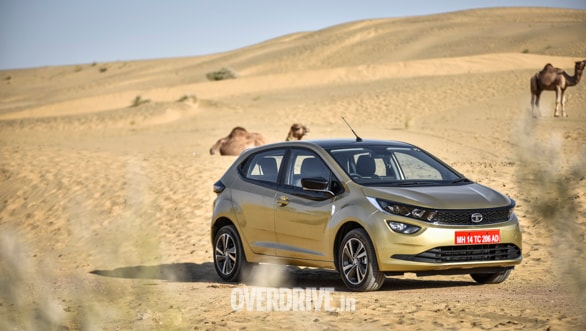
Styling
The Altroz is the second vehicle (first being the Harrier) designed under what Tata terms as its Impact design 2.0 language. For the longest time, Tata Motors was very conservative with its design, so much so that each iteration and generation of the Indica looked similar. Then maybe due to popular perception or customer feedback, Tata Motors presumably decided to adopt a new design approach, first with its highly radical Nexon, and then the Harrier. In my opinion Tata has now gone from 'one extreme to another'.
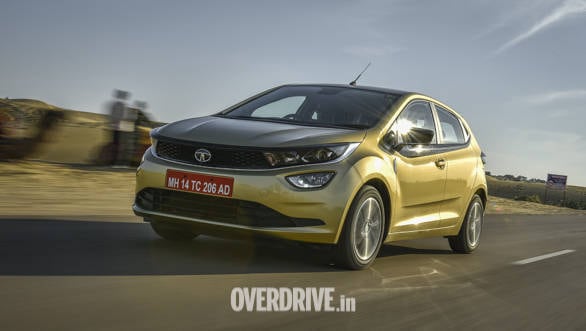
Their new designs, including the Altroz, are very brave and eye-catching and no longer can one say that Tata vehicles don't get noticed or look dull. While I am all for Tata's adventurous approach in design which I think they need to be complimented for, the end result I think, could be more aesthetically appealing.
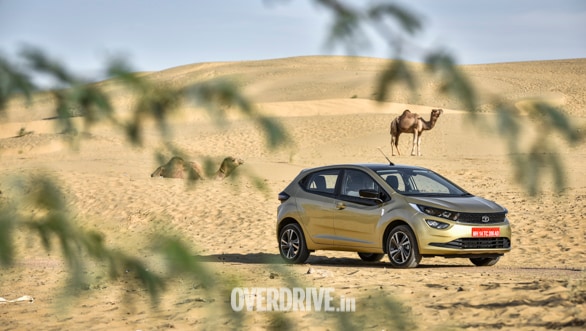
Take the new Altroz which we drove recently in Jaisalmer. It retains a lot of the styling and design elements of the 45X. Concepts are designed to be noticeable. But generally by the time they go into production, several of the more conspicuous aspects get toned down. But thanks to Tata's bold approach, the Altroz certainly looks flamboyant and has several dramatic styling elements like the prominent kink that starts from the A-pillar and flows into the door from where it becomes the rising centre beltline.
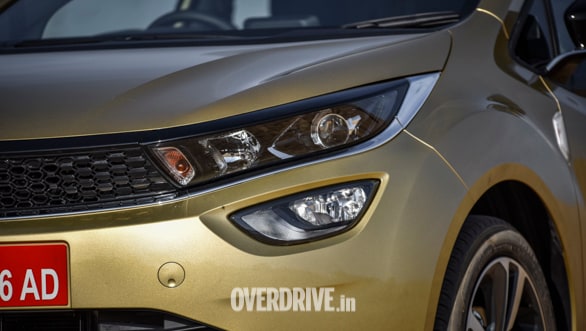
The headlights also sweep upwards and thanks to the chrome surround garnish which kind of elongates them, they appear longer and almost span the length of the bonnet! The front grille is designed to look like a visor from a futuristic helmet, but compared to rest of the sleek front, it does seem a bit upright. The SUV type wheel arches, which add muscle to the otherwise sleek profile of the Altroz, in my view also don't do a lot for the overall attractiveness.
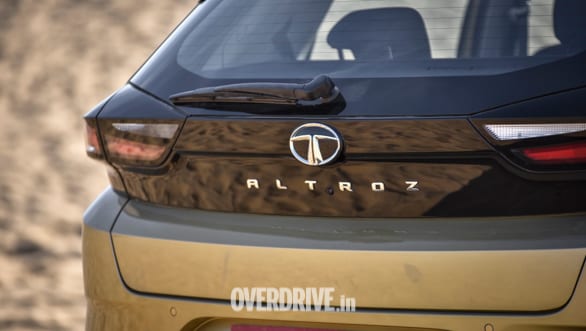
The Altroz also has lots of blacked out portions or what Tata describes as "tastefully integrated piano black accents". The blacked out roof looks good as does the blacked out portion on the tailgate. But I am not sure about the portion below the side windows which gives the impression of extending the glass area. I am also keen to see how well all this black ages, especially in a sunny and hot country like ours. There is nothing worse than a part of your vehicle looking more aged than the rest.
Interiors
Compared to the daring design approach on the outside, the interiors are somewhat tame in comparison. The design is conventional with the centre of the dash being dominated by a large seven-inch touchscreen that comes with many features like Apple CarPlay, Android Auto, SMS readout, voice commands, etc. The display has attractive graphics and three pre-built themes called Zeal, Zing and Zen that control things like the colour of the display and instrument panel, sound, climate control, etc.
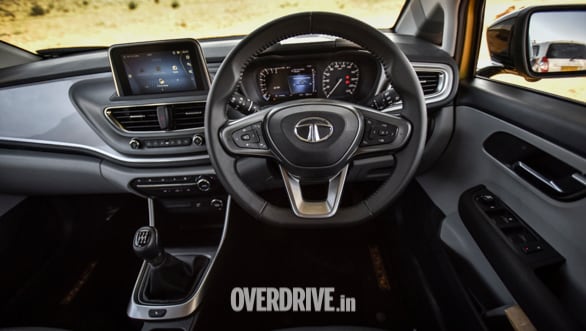
Tata has packed the Altroz with many premium features like rain sensing wipers, auto headlamps, ambient interior lighting, wearable key for passive entry, umbrellas stored in front door pads, Harman speakers and tweeters, smartphone-based navigation, and so on.
The Altroz has a flat-bottomed steering wheel and Tata says that they opted for it to improve ingress and egress. It is thick, sporty-looking and feels very nice to hold and is one of the best features on the Altroz.
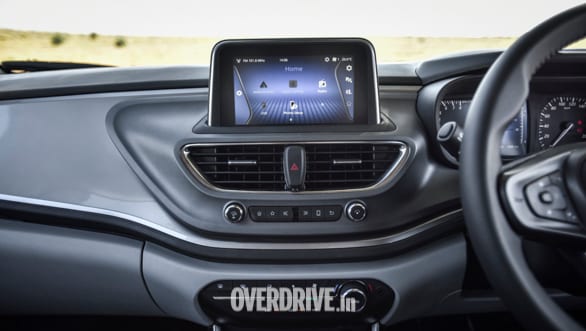
It also has an easy to use horn button or ring that goes all around the steering boss. The other thing that I am really impressed with is the massive 15-litre cooled glove box. It has various slots and cavities for all your papers and knick-knacks, and also a removable tray that increases the useable space substantially. This has to be one of the biggest and best glove boxes in the business.
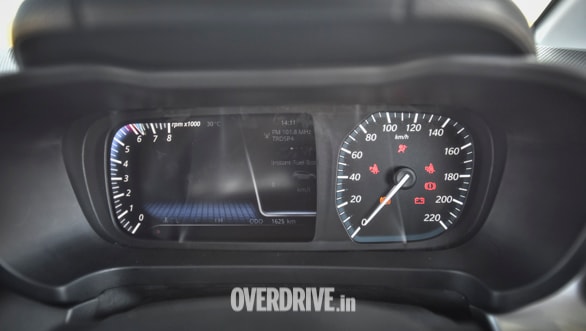
The instrument cluster is semi-digital with an analogue type speedometer and digital RPM meter. In a departure from conventional design norms, the tachometer is placed on the left and speedo on right and in between you have the fuel guage and a digital cluster space that displays other vehicle information. The digital RPM meter indicator needle is difficult to read as it blends in with the background and this lack of contrast means you have to concentrate harder to know the engine revolutions.
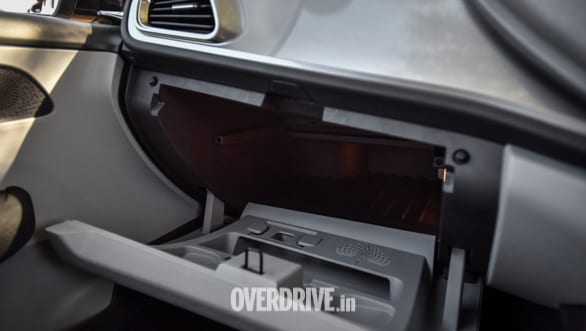
The seats are well-shaped and comfortable and the driving position unlike in several other Tata products is very good. The passenger compartment is spacious but sitting in the rear can get a bit claustrophobic due to the rising window line and small glass area. The wider than normal rear armrest provides good comfort and the door armrests are covered with soft fabric that is kind to your knees. There is also a sliding armrest on the front and the Altroz offers 345 litres of luggage space, but the loading lip is quite high.
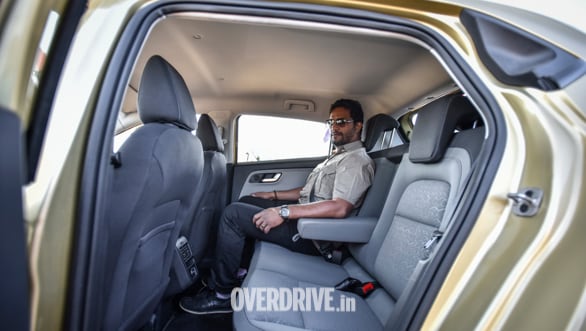
The entire passenger compartment feels well-finished with good quality materials and the Altroz has what Tata terms as wing 90 doors which open 90 degrees to allow better ingress and egress. But thanks to the sharply sloping A-pillar, you have to watch your head while getting in or out. Ingress and egress at the rear is a little compromised too, as the floor is low and the higher door sill is a bit like a step that you have to go over, and this is not so convenient. The fact that the doors open so wide also means you have to be careful not to hit them on the walls or cars parked on the sides.
Engine and transmission
The Tata Altroz comes with a naturally aspirated 3-cylinder petrol engine that makes 86PS and 113Nm of torque. It feels a bit underpowered and you have to rev it hard to make any real progress and it gets quite vocal when pushed. In comparison, the 1.5-litre diesel appears far more refined. It generates 90PS and 200Nm of torque.
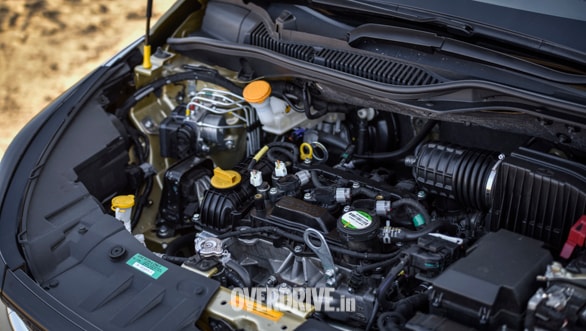
The additional torque gives it good punch and far better drivability and though it will be substantially more expensive than the petrol version, it's the engine I would opt for. The Altroz has two driving modes; City and Economy, but the button to switch between them has nothing written on it. The diesel weighs 1,150kg, which is 114kg more than the petrol and both power plants come mated to a 5-speed manual. The shift quality and precision with which you can select the slots on this transmission, is easily the best yet in a Tata vehicle.
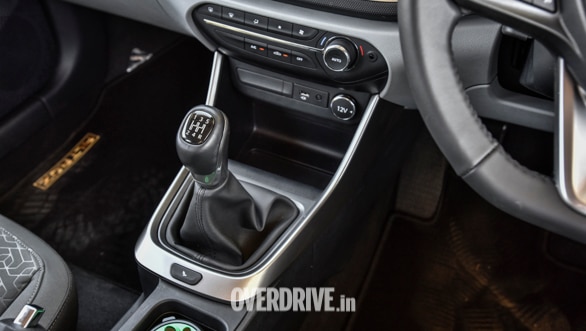
Driving Impression
The Altroz also has the best driving dynamics of any Tata vehicle so far. The new ALFA platform feels strong and stiff and the suspension is very well-sorted too. It deals with all imperfections in the road in an impressive manner and the ride is comfortable without being too stiff. The body roll is also well-controlled and the steering feels nice and accurate and is suitably weighted.
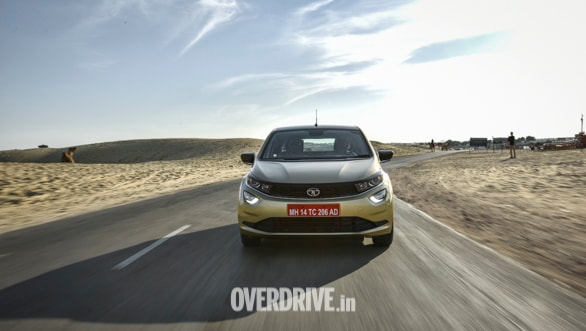
The braking is confidence inspiring and even under hard braking, the Tata Altroz holds its line. The pedal feel and modulation is good too. While the handling also appears to be predictable and the Altroz should stay well planted on twisty roads, we could not really put this to the test on the arrow straight roads around Jaisalmer.
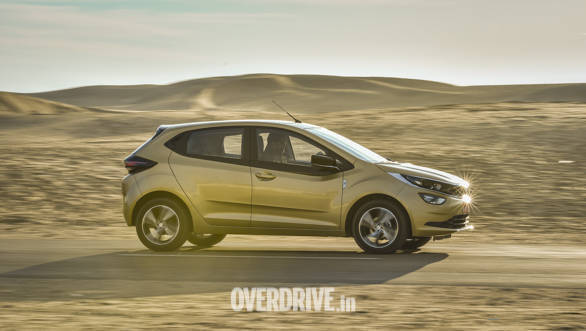
The large windscreen and sharp rake angle mean more light hits the front and top of the dash which results in irritating reflections and glare on the lower part of the windshield. The base of the door mirrors also has a chrome garnish and at certain angles, it reflects the sunlight directly into the driver's eyes, which is really very distracting and disturbing.
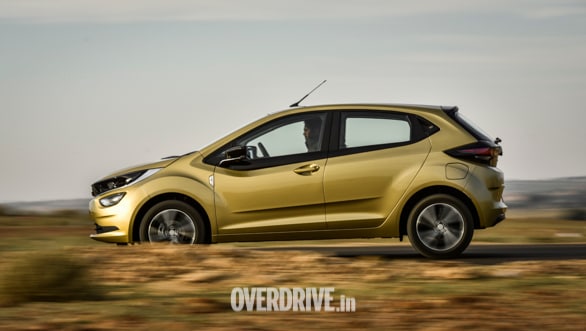
Initial thoughts
The Tata Altroz will compete with the likes of the Maruti Suzuki Baleno, Honda Jazz, Hyundai i20, etc, and though Tata has not announced the price, they should price it competitively in the Rs 5 to 8 lakh range. In my opinion, the Altroz is Tata's best vehicle until now, and one that also has all the ingredients to match up to the competition.
2020 Tata Altroz: Variants explained
Know more about the Tata Altroz' engines and specifications here
See more pictures of the Tata Altroz here
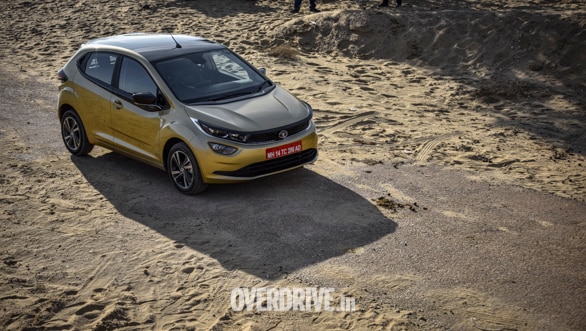
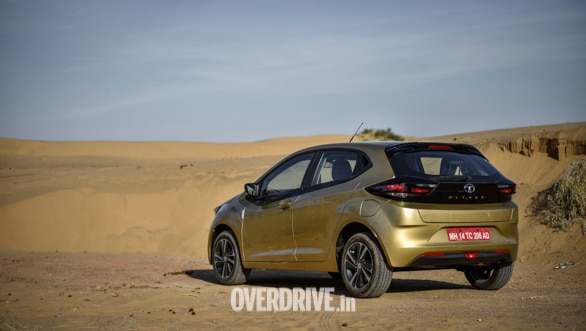
Also see: Tata Altroz | First Drive
Starts Rs 6 Lakhs
1497cc
Manual
86
200
-NA-
Starts Rs 5.89 Lakhs
1199cc
Automatic
90
110
17.1 Kmpl
Starts Rs 6.8 Lakhs
1493cc
Manual
83
241
-NA-
Starts Rs 6.35 Lakhs
1197cc
Manual
90
113
22.94 Kmpl
